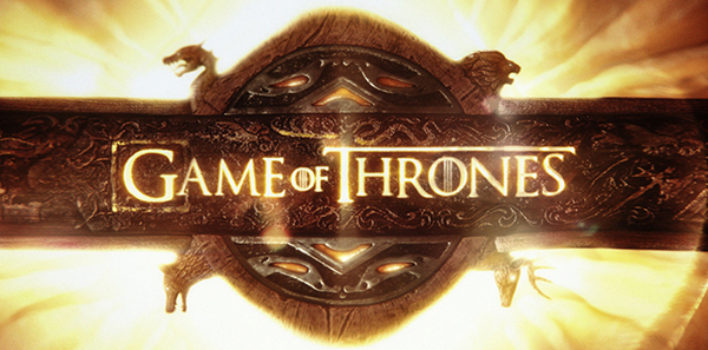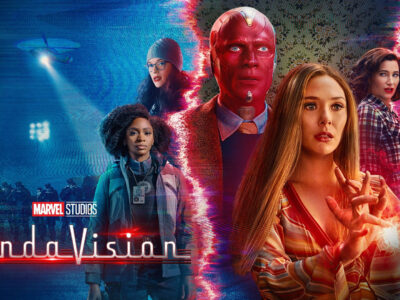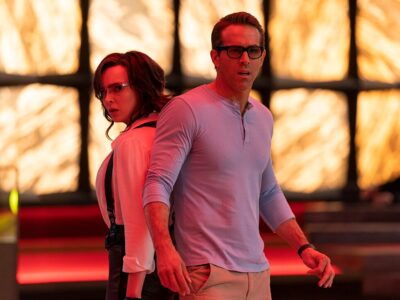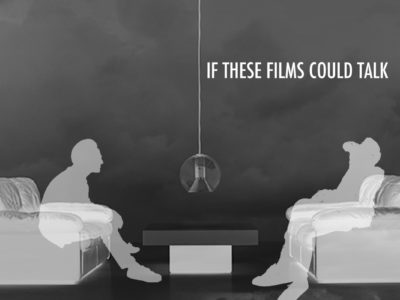Game of Thrones: S0607 The Broken Man
Mark is on assignment this week and this space is being temporarily filled by Mikey Fissel, managing editor at Reel World Theology, in an attempt to make sure no white walkers slip past…
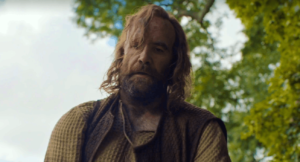 Another week of Game of Thrones, another surprise resurrection of a character we thought long dead (well, most people thought so, anyway). We really should learn that a character is never really dead unless we see them die– and even then, we’re talking only with about eighty percent certainty! Anyway, this week we see the return of Sandor Clegane– the Hound. The last time we saw him, he had just lost a fight with Brienne and was left for dead by Arya. Now we see him healed and brought in with a group of… peaceful religious folk? Yep. Clegane was found and assumed dead by Brother Ray (played to perfection by Ian McShane). Brother Ray, who appears to be a transient septon, healed Clegane’s wounds– the physical ones at least– and incorporated him into his rag-tag flock. It is quite the contrast to the Clegane of old.
Another week of Game of Thrones, another surprise resurrection of a character we thought long dead (well, most people thought so, anyway). We really should learn that a character is never really dead unless we see them die– and even then, we’re talking only with about eighty percent certainty! Anyway, this week we see the return of Sandor Clegane– the Hound. The last time we saw him, he had just lost a fight with Brienne and was left for dead by Arya. Now we see him healed and brought in with a group of… peaceful religious folk? Yep. Clegane was found and assumed dead by Brother Ray (played to perfection by Ian McShane). Brother Ray, who appears to be a transient septon, healed Clegane’s wounds– the physical ones at least– and incorporated him into his rag-tag flock. It is quite the contrast to the Clegane of old.
“Something bad’s about to happen to all these people… you can’t have happy people in Game of Thrones!” Those are the words of my wife during the opening of the episode. I think she understands the world we’re watching pretty well, but more on that later…
This is where the episode title is on point. We start the episode with a man who was found, literally, broken. We thought he had died. Now that his flesh has healed, he is tormented by the actions of his past and the uncertainty of his future. I think the real success of the “The Broken Man” is to realize that the writers were again efficient at weaving a single theme through the episode. Every scene we see someone broken; Clegane, Queen Margerie, Jon Snow, Sansa, Davos, Arya, Theon, Jaime, and even Cersei (who has been denying her brokenness since season one).
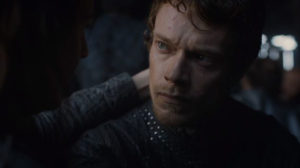 Being broken is crippling. It is a place that everyone tries to avoid– not just our Game of Thrones characters. Sometimes it manifests itself in a very literal sense, like a broken leg, a missing hand, or a knife to the gut. Other times brokenness looks like uncertainty, confusion, or even doubting ones purpose or existence. Brokenness is a powerful thing. It is in brokenness that people tend to stop, or are forced to stop, and reflect– and we get a lot of reflection in “The Broken Man.” Theon is crippled physically and emotionally by his past actions and torments. He is unable to reconcile his existence in light of his experiences. When his sister attempts to coax him out, we finally get to see a look at the torment inside when he responds to the notion that he will get justice by rebuking, “If I got justice, my burnt body would hang over the gates of Winterfell.”
Being broken is crippling. It is a place that everyone tries to avoid– not just our Game of Thrones characters. Sometimes it manifests itself in a very literal sense, like a broken leg, a missing hand, or a knife to the gut. Other times brokenness looks like uncertainty, confusion, or even doubting ones purpose or existence. Brokenness is a powerful thing. It is in brokenness that people tend to stop, or are forced to stop, and reflect– and we get a lot of reflection in “The Broken Man.” Theon is crippled physically and emotionally by his past actions and torments. He is unable to reconcile his existence in light of his experiences. When his sister attempts to coax him out, we finally get to see a look at the torment inside when he responds to the notion that he will get justice by rebuking, “If I got justice, my burnt body would hang over the gates of Winterfell.”
So how do we move on from brokenness? That’s a tough one. Psalm 147 tells us that, ” [God] heals the brokenhearted and binds up their wounds.” I would posit that brokenness is healed through truth: truth in who God is, truth in who we are, and truth about how the world works. I mean, look at our obvious focus in this episode, Sandor Clegane. He (and Theon) are broken by the idea of justice applied to their own lives. Neither can see a way out of their misery because both feel justice demands their destruction. I know it may be radical, but I would say that, at best, that is man’s justice, not God’s. Now, too often, just as we often confuse justice and revenge, we confuse justice and consequences. It’s true that we must be accountable for our actions and sometimes the consequences of those actions may mean we end up defeated by a woman knight or skulking back to our sister without some of our beloved body parts because our past does have a way of catching up to us. But justice? That is determined by God, not men and, more specifically, not us. Sure, we can do our best to determine right from wrong, but justice– true justice– that is something we completely fail to grasp.
Clegane: “If the gods are real, why haven’t they punished me?”
Brother Ray: “They have…”
Isn’t it ironic that we see characters disbelieving in a higher power because they weren’t being punished enough? It’s the opposite of the “problem of evil” argument we usually see. I mean, we rarely get people sitting around wondering why they have it so good (or good for Game of Thrones standards). Usually people only wonder why they have it so bad– but it is still a valid curiosity. This is what is so beautiful about Brother Ray’s tutelage. If we gloss over the unitarian nature of his speech about “maybe they’re all the same god,” then we get a nugget that truly puts life into perspective, for Clegane and for us.
Brother Ray: “What matters, I believe, is there’s something greater than us and whatever it is, it’s got plans for Sandor Clegane…”
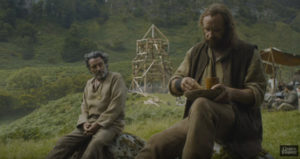 While I would point to the fact that we actually know “whatever it is,” the sentiment is true. We cannot get bogged down in our own brokenness and fail to see the work that God is doing in the world. Let me reiterate: brokenness sucks. It is awful. But it is a tool to remind us that we are not the captain of our lives. There is something greater. Someone bigger. Someone who knows the plans He has for us (Jer.29). Someone who is working all things together for good (Rom.8). While Clegane doesn’t have the luxury of knowing our God, the truth seems to be making a dent in his brokenness.
While I would point to the fact that we actually know “whatever it is,” the sentiment is true. We cannot get bogged down in our own brokenness and fail to see the work that God is doing in the world. Let me reiterate: brokenness sucks. It is awful. But it is a tool to remind us that we are not the captain of our lives. There is something greater. Someone bigger. Someone who knows the plans He has for us (Jer.29). Someone who is working all things together for good (Rom.8). While Clegane doesn’t have the luxury of knowing our God, the truth seems to be making a dent in his brokenness.
Unfortunately, that leads us back to my wife’s observation from the very beginning of the episode. Coming in from the woods, Clegane finds himself in the ruin of his new community. Death and injustice abound. Despite Brother Ray’s brilliant analogy of violence as a disease (that I’ll be sure to steal for future arguments), Clegane certainly looks like he will be moving forward in a regretful new purpose as a weapon of revenge. I guess if he had finally thrown off the mantle of The Hound and devoted himself to a life of peace, simplicity, and piety, then we would get a pretty uneventful story from here on out. Regardless, we can adhere to Brother Ray’s wisdom and not similarly ignore the lessons garnered from brokenness– even brokenness that is not our own. Until next week…
One last off-topic thought: We all think Lyanna Mormont is the best new character, right?!


